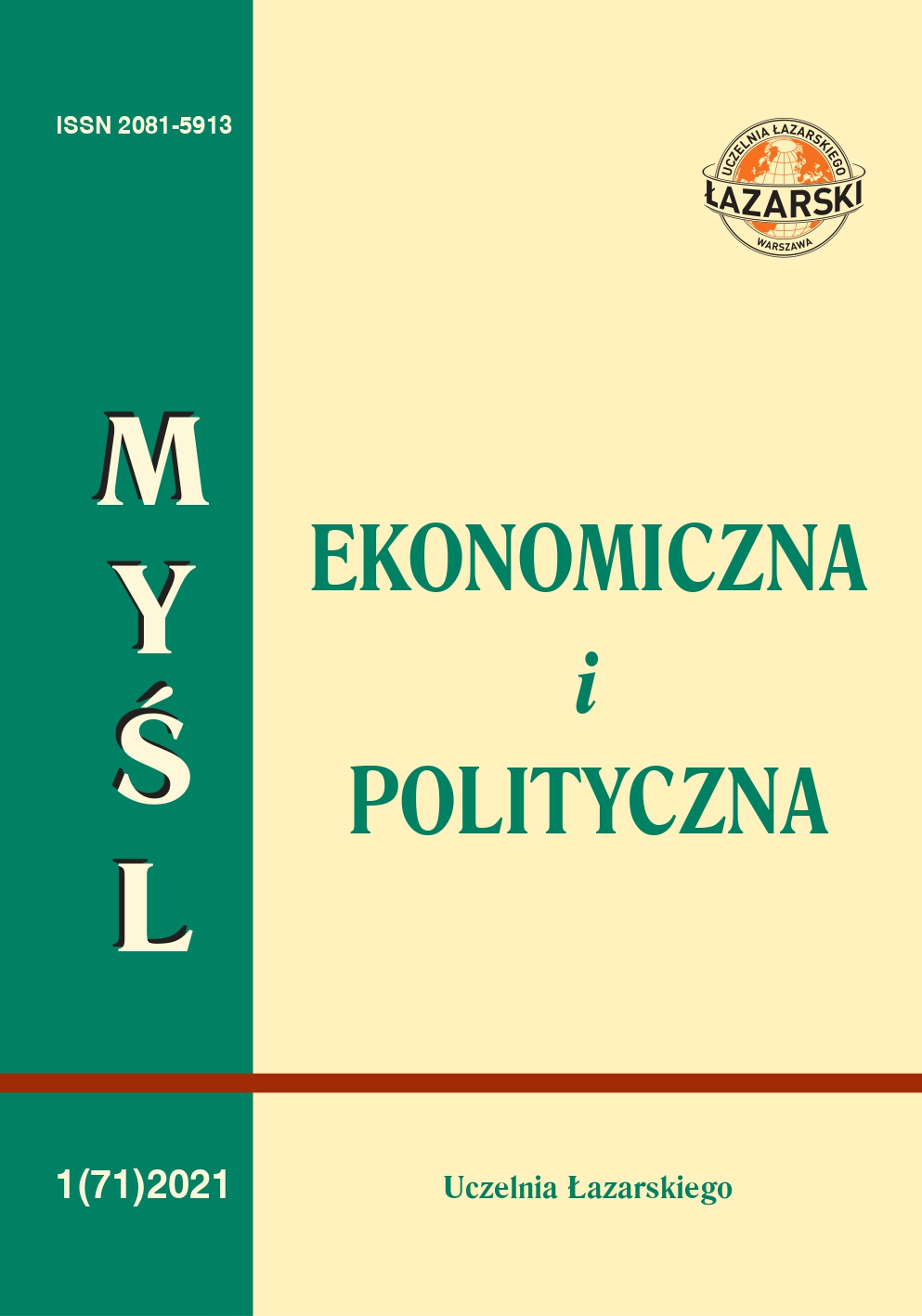Abstrakt
Zorientowanie na rozwój gospodarczy, a także społeczna determinacja w celu wejścia do Unii Europejskiej (UE) były jednymi z głównych motywów reform polskich instytucji publicznych oraz zmian w kierunku neoliberalnej polityki gospodarczej. Głównym celem niniejszego artykułu jest dokonanie pogłębionej analizy przemian, jakie zaszły w Polsce po 1989 roku, ze szczególnym uwzględnieniem dostosowań wprowadzonych w sektorze bankowym. Zastosowano podejście instytucjonalne, a zrealizowane rozważania opierają się na kluczowych etapach powstawania i rozwoju sektora bankowego oraz jego adaptacji do przyszłego członkostwa w UE. Jednocześnie, aby przybliżyć pełniejszą perspektywę polskiej sprawy, rozszerzono ramy czasowe przemyśleń o okres odpowiadający wielkiej recesji, do której przyczynił się kryzys gospodarczy i finansowy (2008) oraz kryzys zadłużeniowy (2010), a także uzupełniono tekst o końcowe refleksje na temat możliwego wpływu pandemii COVID-19 na sektor.

Utwór dostępny jest na licencji Creative Commons Uznanie autorstwa – Użycie niekomercyjne – Na tych samych warunkach 4.0 Międzynarodowe.
